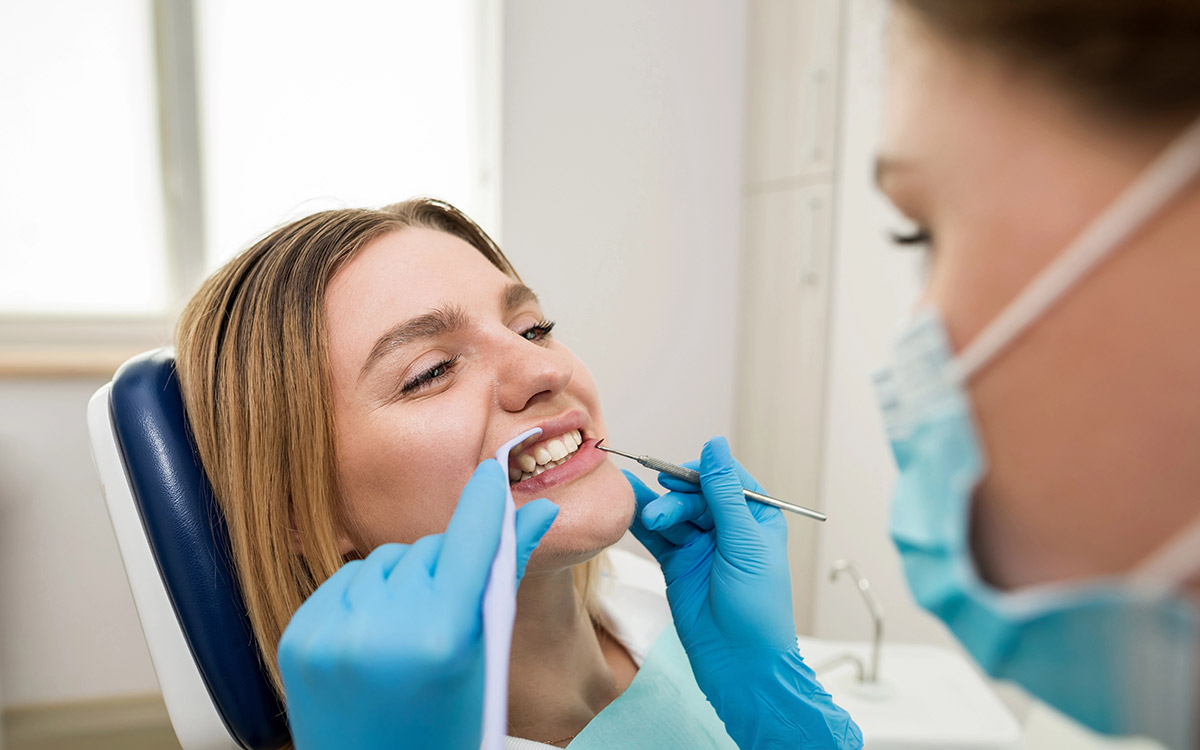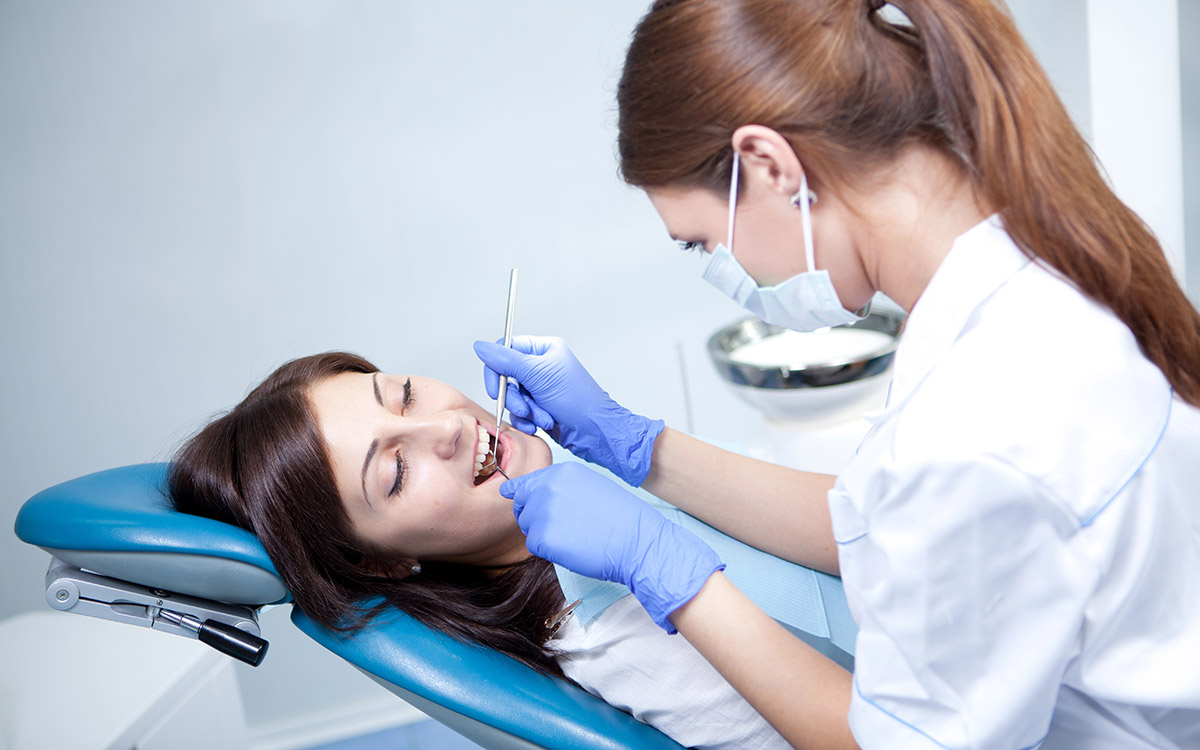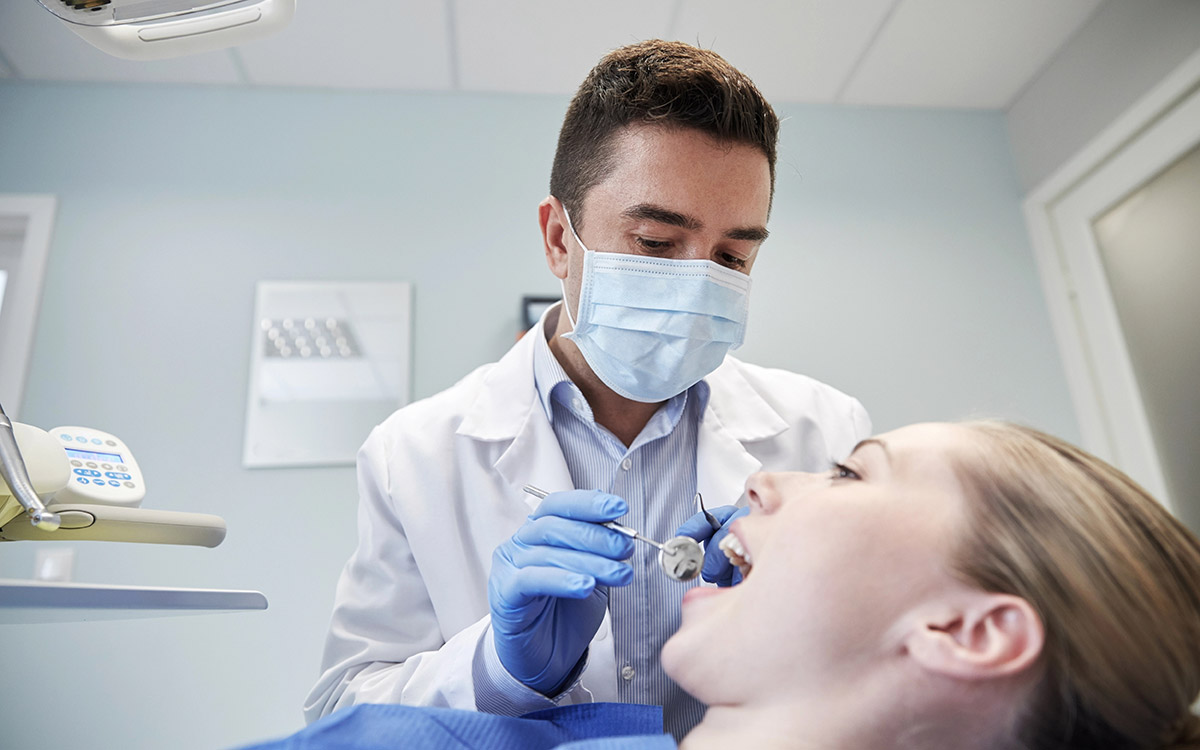Everyone must practice good oral hygiene to help prevent dental issues, including tooth loss, infections, and cavities. Dementia patients may lose their memory of how to wash their teeth or the significance of doing so. So, proper oral care is critical to avoid eating difficulties, digestive problems, and infections.
The information below effectively dives into this issue, providing valuable tips for caregivers of dementia patients.
Effects of Dementia on Oral Health
Dental decay and gum disease are more common in dementia patients. It is often the case because they have trouble maintaining good dental hygiene habits or because they find it difficult to express when they have oral pain, leading to many tooth problems going untreated.
Dental care in the early stages of dementia emphasizes prevention. Regular dental cleanings, flossing, and checkups might help evade the need for invasive procedures in later stages, when the dementia patient may be less able to endure them.
Oral hygiene may be harder to maintain in the middle and late stages of dementia. The person can be unwilling to accept help or forget how to rinse or use toothpaste. Appetite loss may indicate mouth pain or improperly fitting dentures.
Why is Oral Care Necessary for Patients with Dementia?
Oral health impacts attractiveness, comfort, behavior, eating, nutrition, and general health. Every person with dementia requires a unique preventative dental care plan that should start as soon as it is identified.
People with dementia are more likely to experience dental issues for various reasons, including:
- Changed diet – Modified eating patterns, such as replacing meals with sugared tea, little snacks, or sucking boiled lollipops.
- Medication – Taking long-term, sugar-based drugs that can cause dry mouth, tooth decay, and issues wearing dentures.
- Reduced saliva – Using drugs that inhibit saliva production. Saliva is necessary to keep the mouth healthy and prevent the development of oral diseases such as dental decay. Patients may also experience decreased salivation even while not taking medication.
- Poor dental care – Over time, people with dementia become less able to continue their tooth brushing and denture maintenance.
The Key to Keeping Dementia Patients’ Oral Health in Good Condition
Many people with dementia are unable to explain their discomfort or distress. They rely on their family or caregivers to recognize behavioral changes that could point to dental issues, like refusing oral hygiene treatment, not eating, or repeatedly pulling at their faces.
Keep an eye out for indicators of discomfort such as gripping their faces, grimacing, and seeming sensitive to hot or cold food and drinks.
If their gums bleed when brushing their teeth, it may point to plaque in their mouth. The patient should keep brushing their teeth, but if the bleeding persists for two weeks, schedule an appointment with a dentist.
Along with routine checkups, you should make sure they visit the dentist if they have loose teeth or ill-fitting dentures. They might need assistance making and keeping these appointments.
Encouraging the Patient to Clean Their Teeth to Aid with Dental Care
To nudge the patient to clean their teeth:
- Provide short, straightforward instructions. Use a step-by-step breakdown to describe dental care. It might be too general to say, “Brush your teeth.” Instead, guide them through the procedure. You can say: Hold your toothbrush, paste the brush with paste, and brush your teeth.
- Employ the “watch me” strategy. Show the patient how to brush their teeth by holding a toothbrush. Alternatively, gently guide the brush by placing your palm over their hand. Refrain from brushing them if they seem upset or resistant and wait until later in the day.
- Maintain a healthy mouth and teeth. At least twice a day, gently brush the teeth, gums, tongue, and roof of their mouth. The last brushing should come after the evening meal and any liquid medications taken at night. If you must perform the brushing yourself, take your time and choose a comfortable position. To massage the gum tissue while cleaning the teeth, gently insert the toothbrush at a 45-degree angle in the patient’s mouth.
Dementia Patient with Dentures
Keep mouth pain in mind. Look into any oral soreness they have when eating. It may point to mouth pain or improperly fitting dentures if they refuse to eat or make strained facial expressions.
If the patient has dentures, clean them with plain water after meals, and brush them daily to eliminate food residue. Remove them and let them soak in a mouthwash or cleaner every night. After that, brush the gums, tongue, and other soft mouth tissues using a soft toothbrush or a moistened gauze pad.
Find the best toothbrush option by experimenting. A children’s toothbrush with soft bristles might be more effective than an adult brush with harsh bristles. Using an angled or long-handled brush is easier than using a conventional toothbrush. A dementia patient may become confused by electric dental equipment, so be mindful of this.
Most dentists advise daily flossing. If the person with dementia finds floss upsetting, consider utilizing a proxabrush to clean between teeth.
Oral Health and Sugar
Try to limit dementia patients’ consumption of sugary food and drink, especially between meals, as sugar can induce tooth decay. Good substitutes are:
- Unflavored yogurt
- Fruit and vegetables
- Rice cakes or oatcakes
- Cheese and salty crackers
- Bread with sugar-free spreads
- Pitta bread with guacamole or hummus
Instead of fruit juice or sugar-filled squash, suggest that they sip on water. Drinking milk and unsweetened tea and coffee in moderation is acceptable.
Expert Dental Care
When a person with dementia needs treatment, a regular dentist may not always be able to provide it, for instance, if they:
- Require additional guidance or help with maintaining oral hygiene
- Show resistance or distress when treatment is attempted
- Have trouble communicating when they are in pain
- Can’t consent to treatment
If so, the patient’s dentist or another medical expert can advise them to visit a nearby specialist dental service for patients with specific requirements. These programs provide access to a variety of treatment alternatives and professionals who are trained to make clients feel at ease, making dental care simple







